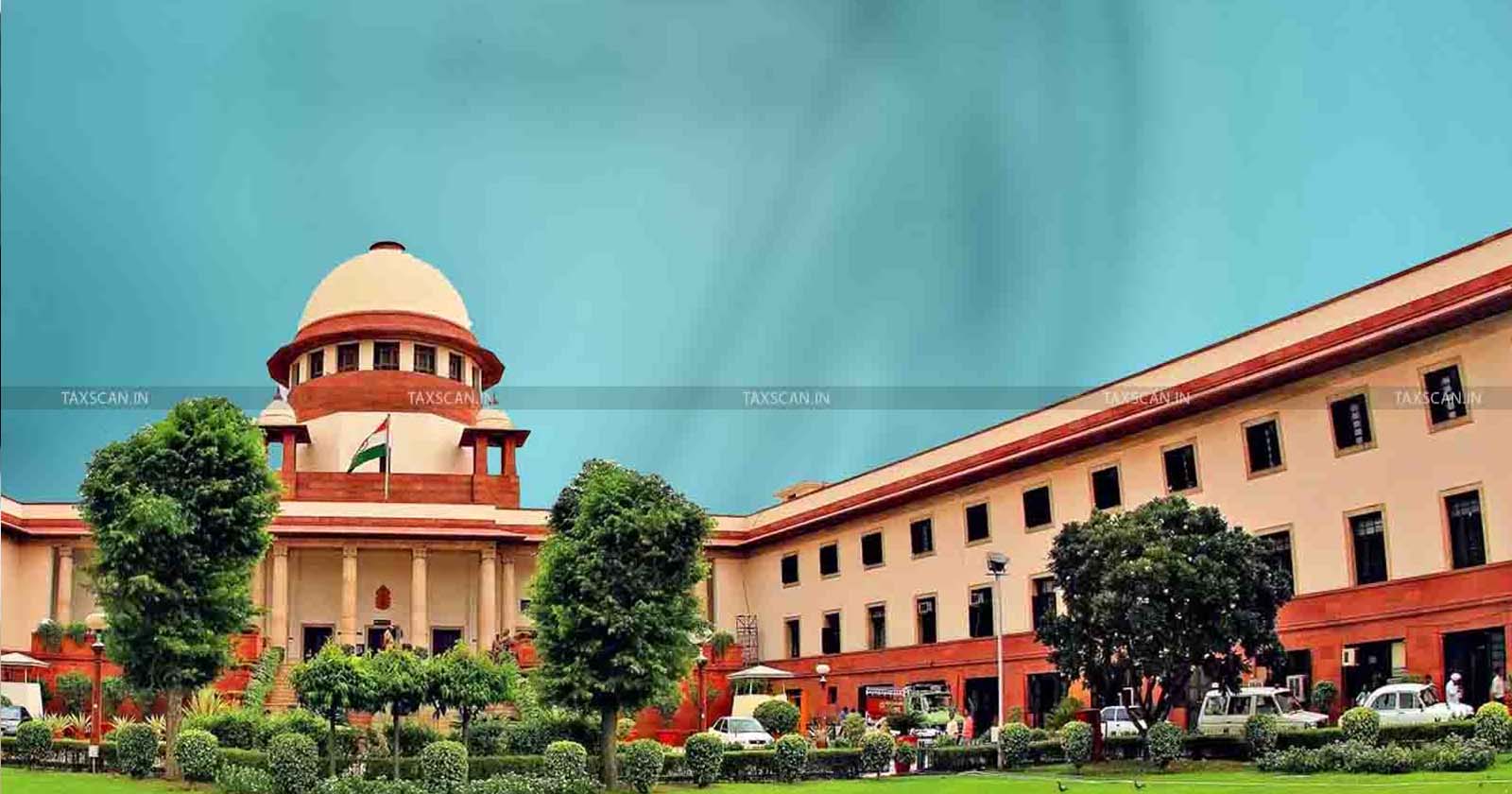Creditors Mustn't be Included Under the Class of ‘Financial Creditors’ Merely on the Basis of the Execution of Mortgage Deeds: SC issues notice [Read Order]
Fundamental element of disbursal, specifically against the consideration for the time value of money, must be evident in the origin of any debt claimed as a ‘financial debt’

Creditors – Financial Creditors – Mortgage Deeds – SC – notice – Creditors Mustn’t be Included Under the Class of Financial Creditors – taxscan
Creditors – Financial Creditors – Mortgage Deeds – SC – notice – Creditors Mustn’t be Included Under the Class of Financial Creditors – taxscan
The Supreme Court has ruled that the crucial requirement of disbursing funds against the consideration for the time value of money must be evident in the origin of any debt claimed as a 'financial debt' for it to be recognized as such under Section 5(8) of the IBC.
The appellant, Anuj Jain IRP of M/s J P Infratech Ltd argued that according to sub-section (7) of Section 5 of the IBC, only a creditor to whom the corporate debtor owes a 'financial debt' can be deemed a 'financial creditor.' Additionally, as per sub-section (8) of Section 5 of the Code, a key requirement for a financial debt is the 'disbursal against the consideration for the time value of money,' encompassing events or modes of disbursement outlined in sub-clauses (a) to (i) of Section 5(8).
It was asserted that the Said Lenders of JAL had no right to demand mortgage funds from JIL, and JIL was not obligated to pay. The argument contended that merely holding security interest, not extended for direct disbursement of credit to JIL, did not qualify the Said Lenders as financial creditors under the IBC.
Furthermore, it was argued that while the definition of 'financial debt' covers various transaction types, it does not include a mortgage, as evident from a straightforward reading of Section 5(8) of the IBC.
The contention was that the Said Lenders of JAL could, at most, be considered ordinary creditors, eligible to file Form F[4] specifying their security interest but cannot be recognized as financial creditors of JIL.
Addressing the concept of guarantee, the argument emphasized that 'mortgage' should not be equated with 'guarantee.' A mortgagor does not undertake to discharge the liability of a third person in case of default in repayment of debts.
Creditors Mustn't be Included Under the Class of ‘Financial Creditors’ Merely on the Basis of the Execution of Mortgage Deeds:SC
Revenue contended that the inherent nature of a 'mortgage' is such that it functions to secure a debt.The assertion was made that a mortgage embodies both a debtor's commitment to repay a loan and a tangible property right. While the right is designed to ensure the timely payment of the debt, a lawsuit concerning a mortgage essentially seeks the recovery of a debt.
It was further contended that a mortgage debt qualifies as a 'debt' as per the definition in Section 3(11) of the Code. Moreover, it was emphasized that a debt can be categorized as a sum due from 'any person,' not necessarily limited to the borrower alone.
The bench consisted of Chief Justice Dhananjay Chandrachud, Justice J.B. Pardiwala and Justice Manoj Misra
The three judge bench determined that the debts in question took the form of a third-party security, purportedly provided by JIL to secure the loans, advances, and facilities acquired by JAL from the Said Lenders. The Court concluded that such a form of 'debt' does not fall within the scope of the term ‘financial debt’ as defined in Section 5(8) of the IBC. Consequently, the Said Lenders, acting as mortgagees, do not qualify as ‘financial creditors’ of JIL.
Therefore, the Court ruled that the fundamental element of disbursal, specifically against the consideration for the time value of money, must be evident in the origin of any debt claimed as a ‘financial debt’ before it can be recognized as such under Section 5(8) of the IBC.
The appellant was represented by Parag P Tripathi, Sumant Batra, Sanjay Bhatt, Rabin Majumder, Sarthak Bhandari and Akansha Srivastava. Revenue was represented by Neeraj Kishan Kaul, Mahesh Agarwal, Rishi Agrawala, Rohan Talwar, Geetika Sharma, Sagar Bansal and E.C. Agrawala.
To Read the full text of the Order CLICK HERE
Support our journalism by subscribing to Taxscan premium. Follow us on Telegram for quick updates


